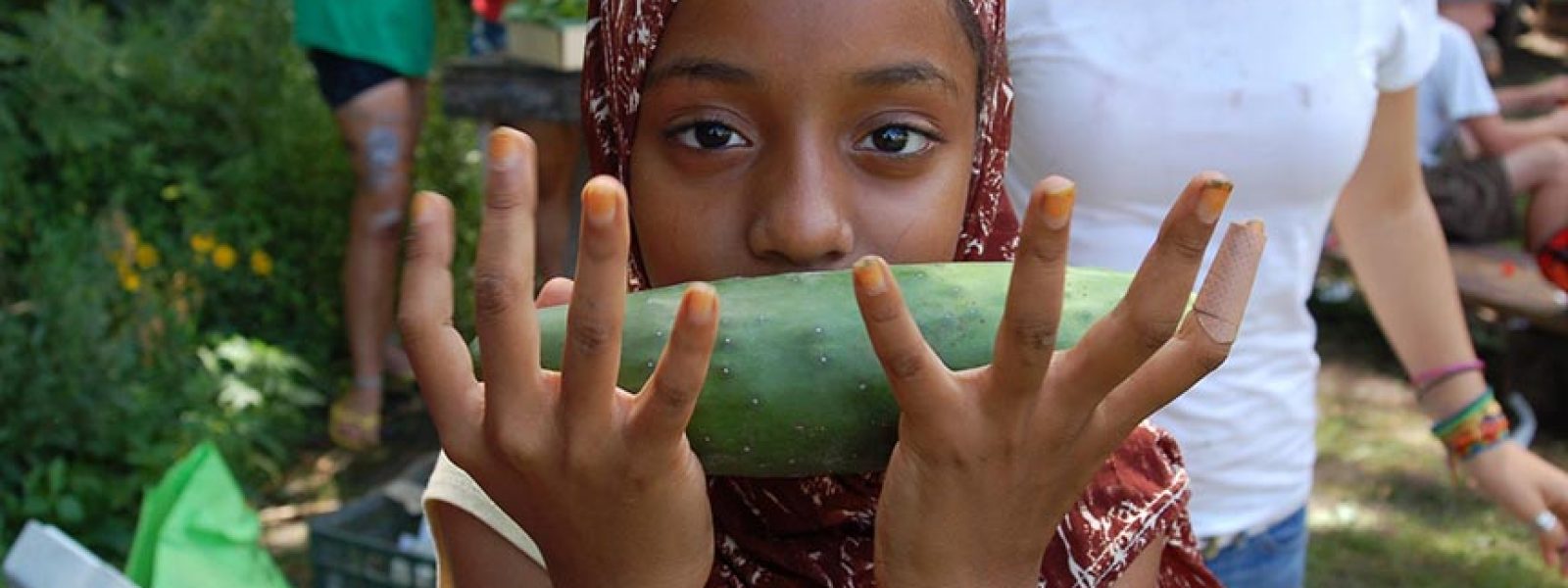Growing Food, Growing Leaders, Growing Community
Food and music go hand-in-hand at Cultivate, the Chipotle-sponsored touring food festival in Loring Park this Saturday (p.s. it’s FREE). There’s more than burritos to be had, with a craft beer-laden tasting hall, cooking demos from celebrity chefs like Richard Blais, Jim Christiansen, Gavin Kaysen, Erik Anderson, Jamie Malone and yours truly, plus music from Atlas Genius, Walk the Moon and local favorite Hippo Campus.
This year’s nonprofit sponsor is Twin Cities-based Youth Farm. We sat down with executive director Gunnar Liden to talk about the Youth Farm mission, engaging young people through food and their ambitious goals of working with the Minneapolis Public School District.
AndrewZimmern.com: What is the Youth Farm mission?
Gunnar Liden: We keep it simple. Our mission is farm to grow. We farm to grow food, we farm to grow community and we farm to grow leaders. We run 18 different farm sites in five different neighborhoods in the Twin Cities, just over 3 acres of land. By the end of this growing season, we will grow about 15,000 pounds of produce.
The focus is to use that food in neighborhoods that we work with. All the food that the young people grow goes back either into our program—for lunches or cooking classes—or home into the families in a CSA that they get weekly. We want the impact of the food we grow to have an impact on people’s ability to access food.
Food is also an access point for young people to not just be great leaders 20 years down the road, but right now— whether they are a 9- or 10-year-old doing work on one of our farms, or they’re a teenager leading classes and being a liaison for community organizations. Food is a great entry way for young people to take an active role in their community.
AZ.com: Tell me more about the CSA. Who facilitates the harvest and distribution? Who does the produce benefit?
GL: When the organization first started, we had produce at corner stands and markets… we weren’t successful at getting our food out and we weren’t making any money. We want the food to positively impact the neighborhoods we work in. So our teenage staff came up with a whole mission for the food we grow. Every year now, they are in charge of analyzing what they grew during the summer, talking to family members about the quality of produce, laying out the farm plans for the next year. Once a week we have a distribution day, where youth do all the harvesting, and create bags of food for everyone to take home free of charge.
AZ.com: Do you find kids are more adventurous or have a stronger interest in cooking after helping to grow the produce?
GL: Cooking is a huge component of our program. Each of the five neighborhood programs have between 40 and 70 youths on site every day. Each neighborhood hires a chef who works with the young people to prepare lunch for their peers. When you work with young people and you get them in a kitchen, and have them working with food—particularly food they helped grow—they are really curious and they are really open to eating healthy food. If you give them the opportunity, young people like to eat healthy food. There are very few young people who don’t like to get in the kitchen, chop things up, sauté and have a good time.
AZ.com: What kind of meals are they preparing?
GL: One of the best things about my job is getting to share lunch with them a few days a week. We try to use a ton of the produce we grow. One of their favorites is pesto pasta. Every meal has some sort of salad component, with lettuce and greens grown on site, and homemade dressing. We also have opportunities for parents to come in and cook meals, whether it’s more traditional meals of the home culture or just something they like to cook. So, it’s not your regular meat-and-potatoes kind of food.
AZ.com: What are your goals for the next five years, where do you want to see this organization grow?
GL: We’ve started to work on a partnership with Minneapolis Public Schools and Nutrition Services, to create a larger scale production farm that would integrate some aspects of Youth Farm, but would be used both educationally and for production for use in school lunches. We are really looking to push the envelope of how an organization like Youth Farm can partner with larger school districts.
Beyond that, which is a big undertaking for us, we are always trying to find ways to expand the breadth of our work without running up against the capacity of a small nonprofit organization. We’re always looking to find new ways to impact more people.
AZ.com: How can people get involved?
GL: Go to our website, there are a host of ways to get involved—volunteer, work with young people, in the organization, on the farm. We have an event coming up in 3 weeks that’s on one of our farms, it will be a great way to learn, see what we do and get involved.
More info & tickets for Taste of the Farm Fundraising Dinner >>>




